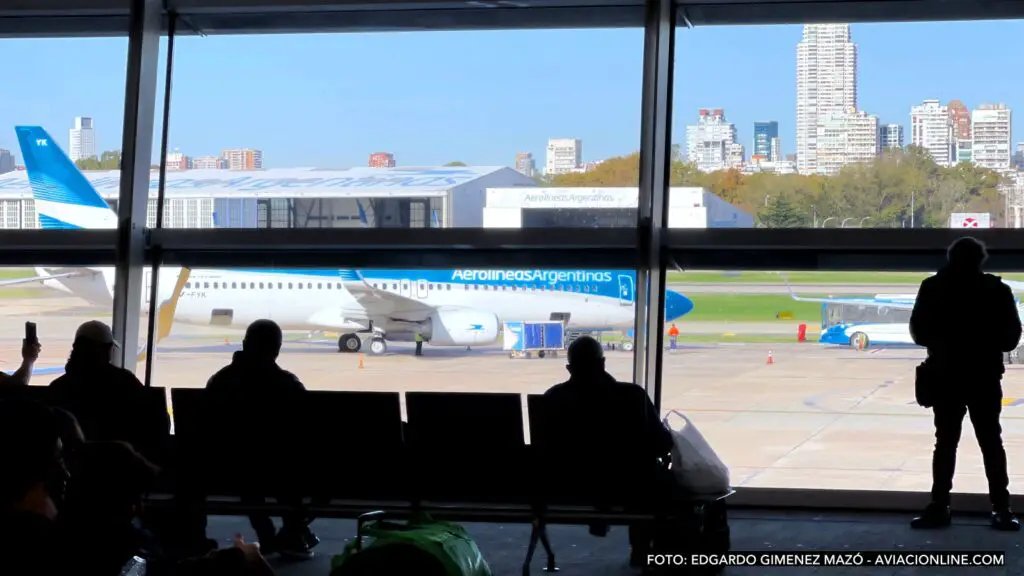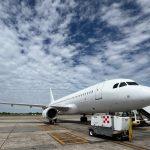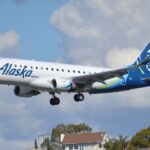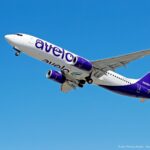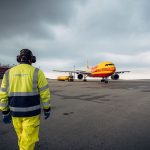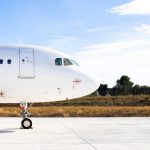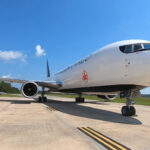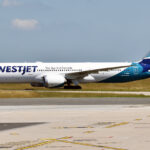Aviation unions APLA (Airline Pilots Association), the Association of Flight Attendants (AAA), and the Aeronautical Personnel Association (APA) of Argentina signed agreements early this morning following an extensive round of negotiations, which at times seemed on the verge of collapse due to the pilots’ reluctance to give up certain privileges granted in the Collective Bargaining Agreement with Aerolíneas Argentinas.
Finally, around 4 a.m. today, after agreeing to a series of reductions in labor benefits and salary adjustments, APLA finalized the agreement, though it remains subject to ratification by a workers’ assembly before taking full effect.
For APA and AAA, the situation was different as they had nearly everything settled earlier in the evening but chose to delay signing until APLA did so. Once APLA concluded its negotiations, they too signed, according to sources present at the meetings.
Agreement
The representatives of the three airline personnel unions accepted a 16 percent pay increase and conceded certain “privileges” outlined in the labor agreement. Although the signatures are contingent on assembly approval, union sources indicated that the agreement “is solid,” suggesting that ratification is likely a formality.
For the pilots specifically, the agreement introduces a new “productivity” clause, which offers an additional 3 to 4 percent based on the number of overtime hours flown. Pilots also agreed to restrict free tickets to Economy class, with an upgrade to Business class subject to availability.
Regarding the controversial issue of car services, these will continue to be available until the contracts with the respective companies expire. However, starting now, both pilots and cabin crew will begin their workday upon arrival at the airport rather than when entering the vehicle, as was previously the case.
Productivity
The productivity measure is significant, as Aerolíneas Argentinas pilots fly fewer hours than their peers in other airlines in the region. A captain on transoceanic flights for the national airline flies around 40 to 50 hours per month compared to 70 hours for a pilot at LATAM, Copa, or Avianca.
Other agreed items included shorter rest periods in remote destinations such as Madrid and Rome, no longer providing Business class seats for rest during flights, and reducing discounted tickets for pilots, flight attendants, and their families.
To facilitate the negotiations, union leaders Pablo Biró (APLA), Juan Pablo Brey (AAA), and Edgardo Llano (APA) abstained from participating directly and delegated the task to their respective union area representatives, who maintained constant communication with them via mobile phones from the company’s headquarters at Aeroparque.
Now, the only step remaining is for the assemblies to ratify the agreements, after which an official announcement will be made by the national government.
APLA Agreed to:
- Forfeit confirmed Business Class tickets, including for retirees, reclaiming a potential $8 million in annual revenue.
- Forfeit Business Class rest seats. Pilots previously had designated rest seats in premium class—two for flights to Europe and one for flights to the U.S. This meant an average of 10 seats per day, reclaiming a potential $5 million in annual revenue.
- Forfeit the mandatory day off on birthdays.
- Adjust the service time calculation: it will now begin at the airport rather than when entering the car service.
- Cancel car service for training purposes, although the service will continue temporarily until contract cancellations are finalized.
AAA Agreed to:
- Begin service time at the airport, similar to pilots, instead of when entering the car service.
- Move to a crew pool system: previously, crew assignments were divided by aircraft type and region (domestic or international). Now, all crew members will work across all aircraft and regions.
- Transition to regulatory rest hours, relinquishing company-designated rest schedules.
- Forfeit long-haul flight rest areas with bed-style seating.
- Agree to participate in onboard sales, which was previously blocked by unions.
- Cancel car service for training purposes, as with the pilots.
APA Agreed to:
- Implement Self Bag Drop, allowing passengers to check bags independently, as is standard in most airports worldwide.
- Accept self-service check-in kiosks, which had previously faced union opposition.
- Provide services to third parties, an opportunity expected to generate $10 million in annual revenue for Aerolíneas.
- Embrace multifunctional roles in hangars and service areas, enabling personnel shifts between hangars and equipment driver reassignment.

